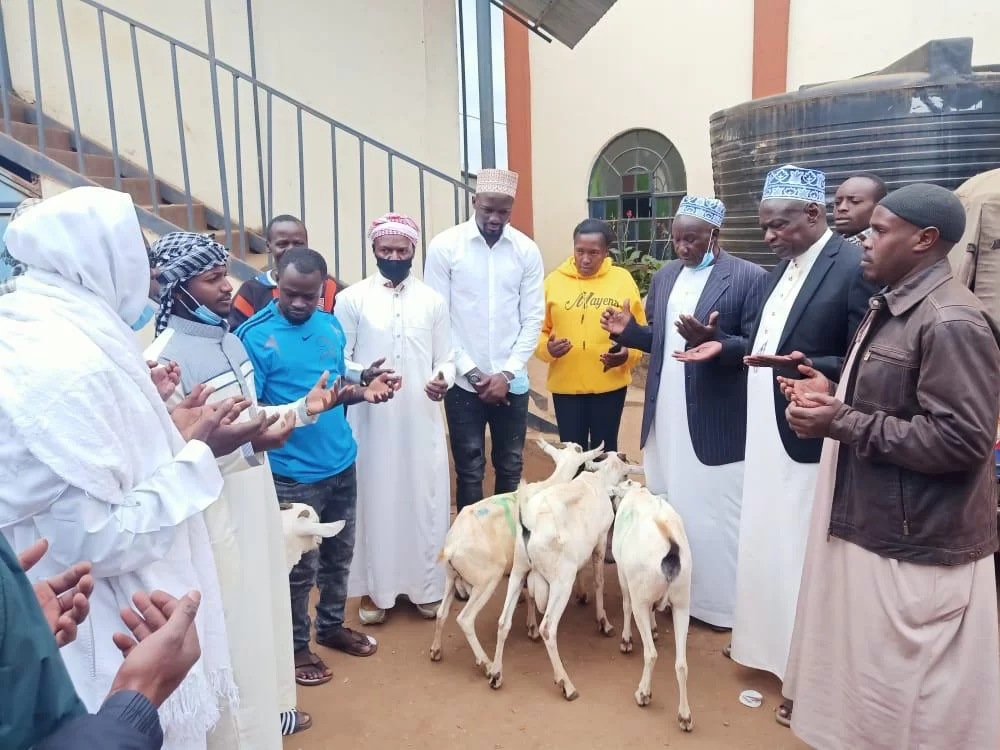Eid ul-Adha, also known as the “Festival of Sacrifice,” is one of the most significant Islamic holidays observed by Muslims worldwide. It falls on the 10th day of Dhu al-Hijjah, the final month of the Islamic lunar calendar, and lasts for up to three days. The festival holds deep religious significance and commemorates the willingness of Prophet Ibrahim (A.S) (Abraham) to sacrifice his son (Ismail, A.S) as an act of obedience to Allah (SWT).
The origin of Eid ul-Adha is rooted in the story of Prophet Ibrahim (A.S), who is revered in Islam, Christianity, and Judaism. According to Islamic tradition, Allah (SWT) tested Ibrahim’s faith by commanding him to sacrifice his beloved son, Ismail (Ishmael). Demonstrating unwavering devotion, Ibrahim (A.S) prepared to fulfill the divine command. However, as he was about to carry out the sacrifice, Allah (SWT) intervened and provided a ram to be sacrificed instead. This act of obedience and sacrifice is celebrated annually by Muslims around the world as Eid ul-Adha.
Religious Practices and Rituals
Eid ul-Adha is marked by a range of religious practices and rituals that emphasize community, charity, and devotion to Allah (SWT):
The Hajj Pilgrimage: Eid ul-Adha coincides with the Hajj pilgrimage, one of the Five Pillars of Islam. Each year, millions of Muslims from around the world travel to Mecca in Saudi Arabia to perform the Hajj, which is a mandatory religious duty for those who are physically and financially able to undertake the journey at least once in their lifetime.
Prayer and Sermon: The day begins with a special prayer service at the mosque, known as Salat al-Eid. The prayer is followed by a sermon (khutbah) that highlights the significance of the festival and the virtues of sacrifice and obedience to Allah (SWT).
Qurbani (Sacrifice): One of the central rituals of Eid ul-Adha is the qurbani, or the sacrificial slaughter of an animal, usually a goat, sheep, cow, or camel. This act commemorates Ibrahim’s willingness to sacrifice his son. The meat from the sacrifice is distributed among family, friends, and those in need, ensuring that all Muslims can partake in the festivities regardless of their economic status.
Charity and Generosity: Eid ul-Adha emphasizes the importance of charity and generosity. Muslims are encouraged to donate to those less fortunate, both through the distribution of sacrificial meat and other forms of almsgiving (sadaqah). This reinforces the values of compassion and social responsibility within the Muslim community.
If a Muslim is unable to perform Hajj during the month of Dhu al-Hijjah, they can take to ensure they still fulfill their religious duties and seek Allah’s blessings by fasting on the Day of Arafat (9th of Dhu al-Hijjah), which expiates sins of the previous and coming year, and performing additional prayers, reciting Quran, making du’a (supplication), and giving charity.
Importance of Eid ul-Adha to muslims
Eid ul-Adha is a festival of immense religious and cultural importance to Muslims around the world. It commemorates the profound act of faith and obedience by Prophet Ibrahim and serves as a powerful reminder of the values of sacrifice, charity, and community in Islam. Through its rituals and practices, Eid ul-Adha reinforces the spiritual and social bonds that are fundamental to the Muslim faith.
Eid ul-Adha holds profound significance for Muslims, encompassing various spiritual, social, and cultural dimensions:
Spiritual Reflection: The festival is a time for Muslims to reflect on the concepts of faith, obedience, and submission to Allah’s will. It serves as a reminder of the importance of placing one’s trust in Allah (SWT) and being willing to make personal sacrifices for the greater good.
Strengthening Community Bonds: Eid ul-Adha fosters a sense of unity and brotherhood among Muslims. The communal prayers, shared meals, and collective acts of charity enhance social cohesion and reinforce the values of empathy and mutual support.
Cultural Celebration: While rooted in religious tradition, Eid ul-Adha is also a cultural celebration marked by festive meals, new clothing, and gatherings with family and friends. It is a time of joy and gratitude, where Muslims come together to celebrate their faith and heritage.
Promoting Social Equality: Through the distribution of sacrificial meat and charitable donations, Eid ul-Adha promotes social equality and alleviates hunger. It ensures that the blessings of the festival are shared with the less fortunate, embodying the Islamic principles of social justice and compassion.



